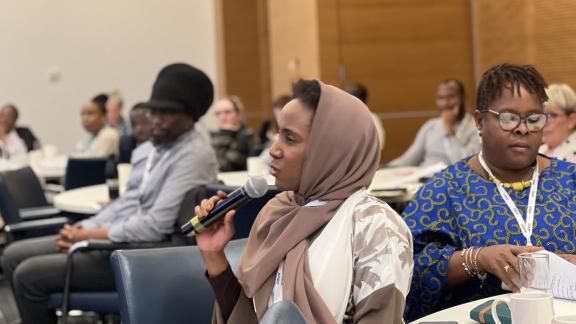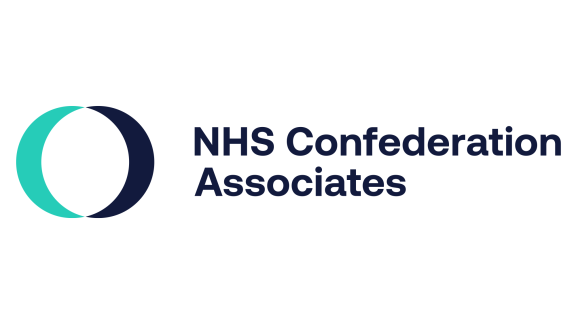Tackling racism requires more than just warm words

With anti-racism commitments stalling in the aftermath of 2024’s race riots, organisations must have an evidence-based plan, must invest financially and practically in tackling racism, and have the accountability within their structures to implement real consequences for inaction.
Are we still talking about racism?
This is a question we hear often following the race riots and unrest during summer 2024 as we, as a society and as a health service, were forced to grapple with the reality that we still have a long way to go in achieving racial equity. Years on from the commitments made by Sir Simon Stevens in 2020 acknowledging the need for ‘faster action…on the reality of the racism and discrimination experienced by many colleagues across the NHS’ highlighted by the murder of George Floyd; over 76 years from the establishment of the NHS, built on the labour of immigrants from former Commonwealth nations; are we still having to tackle this issue? The answer is yes. The question is why?
We did not ask the question enough when the riots were in full flow. There wasn’t time. There were members of staff to protect and additional patients to treat in already very busy services. Some NHS organisations had to declare major incidents as they struggled to balance the need to provide care with the real threats to the safety of their NHS staff. Health service leaders were grappling with questions such as how ethical it was to require ethnic minority staff to come to work at the risk of being attacked or abused, or to ask them to provide care to the perpetrators of the racist and Islamophobic unrest.
Picking up the pieces
But as the dust settles and normal service has resumed, the news cycle moves on and we are left to pick up the pieces. What has followed, as is often the case, is a stream of fresh commitments to confront and tackle racism that sadly miss the necessary strategic and well-resourced action plans NHS organisations need to be actively anti-racist. The actions that then follow are therefore unsuccessful in building a health service that works for all patients and staff. And so, the problem continues.
“Racism is an action, but it is also inaction, avoidance and redirection”
That racism is a part of everyday life for so many black, Asian and ethnic minority people living in the UK is a fact. This is a reality that is also navigated by members of our healthcare workforce at all levels - frontline staff, managers and leaders. We have the quantitative data and the first-hand qualitative accounts to prove it but we often only stand up and take notice when faced with the most egregious examples, as we did last summer.
We know that to tackle racism head on requires strong leadership.
Racism is an action, but it is also inaction, avoidance and redirection. So if organisations do not have an evidence-based plan, such as the frameworks developed in the East of England and London regions to tackle racism within services and the workforce, if they do not invest financially and practically into tackling it, and if they do not have the accountability within their structures to implement real consequences for inaction, racism will persist and it will continue to do harm.
So, what should leaders do to tackle it?
Leadership
With a 1.4 million strong workforce, the NHS is a microcosm of wider society. What happens outside of the workplace is eventually reflected within the workplace. The necessary complex plans to improve health, make people better and provide staff with safe and progressive workplaces, are impacted.
We know that tackling racism helps improve patient care and helps the NHS save money, so any plans for patient care and for progressive, efficient workplaces must include tackling racism at their heart. Talk of belonging and inclusion is cheap if not linked to the dismantling of structures facilitating institutional racism, namely the under-representation of BME staff in senior roles and what has been described as the ‘operationalising of stereotypes leading to the assumption.. that BME individuals are not a good fit for leadership’.
Data-driven improvement
The last eight years of WRES data reporting tells us that critical actions are required by leaders in supporting improvement to meet model employer goals. These goals track in detail the relative distance in workforce numbers it would take for NHS trusts to have equity in representation of ethnic minority staff across all grades.
The Workforce Race Equality Standard (WRES) and NHS Staff Survey data processes are not meant to be a bureaucratic tick-box exercise. Rather, the data should be the first step towards concerted action to close the inequality gaps. If we can successfully plan and deliver complex change programmes within healthcare, we can certainly plan to utilise workforce data, such as the WRES reporting, which offers rich insights into the experiences of ethnic minority staff, as a part of delivering and evaluating the cultural improvements required to ensure high-quality care for all.
Accountability
Leaders have a comprehensive vision for their organisations and push forward to deliver that vision, especially in challenging circumstances. Tackling racism is no different. The time for challenge and to ramp up accountability to tackle racial inequality is now.
After all, the evidence is very clear: tackling racial inequality in the NHS leads to engaged and supported workforce, better outcomes for all patients, and organisational efficiency.
Joan Saddler is director of partnerships and equality at the NHS Confederation and co-facilitator of the BME Leadership Network. You can get updates on the network by following the NHS Confederation on BlueSky and connecting on LinkedIn.
The NHS Confederation and BME Leadership Network are hosting No One Left Behind: Anti-Racist Healthcare Conference on 15 May in central London, as part of a programme of action to support the NHS to achieve its goals of anti-racism for both its workforce and service provision.
The event is an opportunity for leaders to explore the priority actions and quality solutions needed to drive improvements and create a more inclusive and equitable healthcare system.



